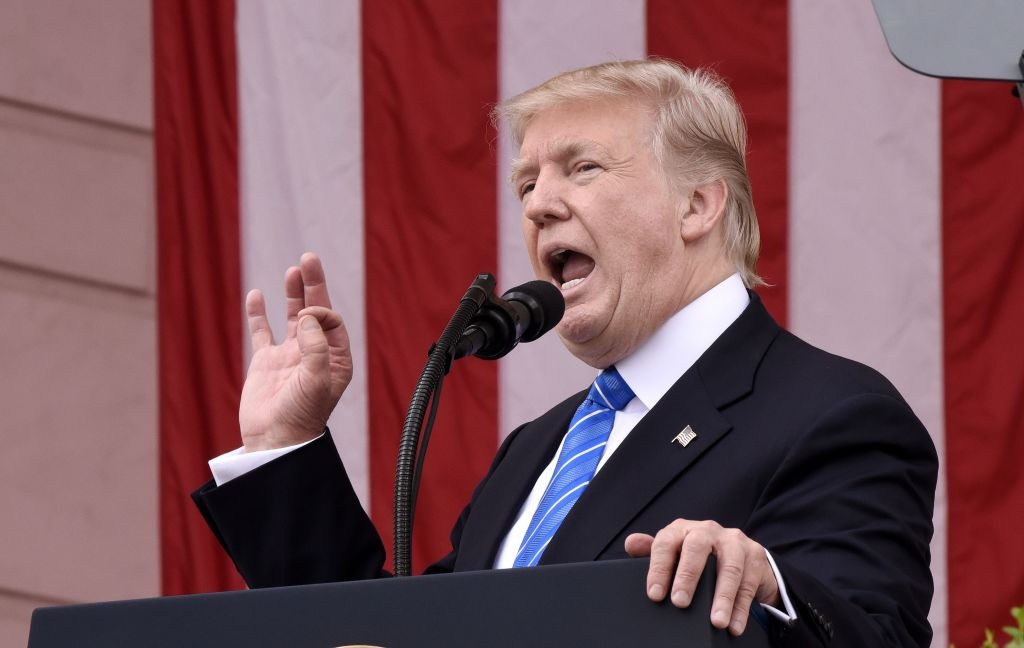Germany’s VDA warns Europe to lose competitiveness as Trump abandons climate pact
05 June 2017

05 June 2017
It seems Trump has found a way to directly boost US carmakers at the expense of those of Germany.
Germany’s powerful auto industry has warned of a severe loss of competitiveness following US President Trump’s regressive announcement he would withdraw America from the Paris climate pact.
President of the VDA German auto industry lobby group Matthias Wissmann said: ′The regrettable announcement by the USA makes it inevitable that Europe must facilitate a cost efficient and economically feasible climate policy to remain internationally competitive.’
He added: ′The preservation of our competitive position is the precondition for successful climate protection. This correlation is often underestimated.’
The VDA, which represents carmakers including the Big Three (Volkswagen, Daimler’s Mercedes-Benz and BMW) also pointed out that Germany already suffers a disadvantage compared to the US as electricity and energy prices are already higher in Germany than in the United States, in part due to Germany’s Energiewende renewables push and shutting down its nuclear reactors.
However, German Chancellor Angela Merkel – one of the strongest advocates of the global pact to curb emissions – steadfastly confirmed there was no turning back from the 2015 agreement.
Head of the core Volkswagen (VW) brand Herbert Diess has also warned that possible trade barriers in the US under Trump are hampering the Volkswagen Group brand’s US expansion plans. The Passat maker is considering also additionally building SUVs at its only US factory as it aims to boost sales and reverse losses in the region by lifting the Chattanooga, Tennessee, site to full capacity.
Diess sees North America as a pivotal part of his efforts to strengthen the core VW brand’s weak profit margins outside China (considered by analysts as fundamental to turning around the fortunes of the entire Group) as it continues to recover from its emissions scandal.
Daimler is also boosting its operations in the region, although it is keen to stress the plans pre-date Trump’s ascendency. Similar to its work at its Mercedes-Benz factory in Beijing, China, it is ′deepening its supplier base’ in the US, according to CEO Dieter Zetche, as it undertakes a $1.3 billion (€1.16 billion) expansion of its Alabama factory.
On its end, BMW has somewhat cheekily invited Trump to attend an event this month celebrating the 25-year anniversary of its massive factory in South Carolina, its biggest production facility worldwide and the biggest car-exporting factory in North America by value. Nevertheless, with Trump criticising the high sales of German carmakers in the US, Trump’s attendance seems highly unlikely. Executive Peter Schwarzenbauer though has underlined that the company is ′relaxed’ about its US position, due to its regular communications with US authorities, which presumably portray a much more measured picture of US potential policy than Trump’s bravado.
Politically it seems impossible that Germany – symbolically central to the EU strategy – would weaken climate change targets when the EU was instrumental in forging them. Instead, the opposite is happening with the EU and China reaffirming their commitments to the plan. Therefore any material large-scale changing of targets is highly unlikely to happen, although a considerable level of movement to boost competitiveness, without affecting the overall climate targets laid out in the Paris agreement, is achievable. Nevertheless, this will still leave US carmakers off the hook, at least temporarily.
It appears Trump has given US carmakers a big unfair competitive advantage at the expense of future generations and the planet.
However, the world’s giant fast-expanding growth regions – namely China, India and South East Asia – remain committed to the Paris accord, so German carmakers (strong in China and making inroads in India) remain well-placed to tap into the future of the industry worldwide, even if US carmakers gain a short and medium term advantage.
Nevertheless, if US carmakers keep expanding in Mexico, it is unlikely Trump is going to get the outcome he wants anyway.